Antonia has been paving the way for greater sustainability management in UK universities after choosing to explore the topic for her doctoral thesis. Her work was even recognised for a prestigious award last year!
We caught up with Antonia to learn more about her area of research expertise, her journey as a PhD student at the School of Education, and what her hopes are for her groundbreaking research after successfully defending her doctoral thesis.

Tell us a little bit about yourself!
I am a passionate researcher, and for the last nine years, I have immersed myself in the world of academia. I believe in the power of lifelong learning. Every year, I have pushed myself a little further beyond my comfort zone and tried out something new. Whether through presenting my research at a global conference or serving as the Faculty PGR representative at the University of Bristol, I am striving to have a positive impact on people’s lives. On the rare occasions when I am not at university, you will probably find me folding intricate origami figures or watching the latest K-drama series.

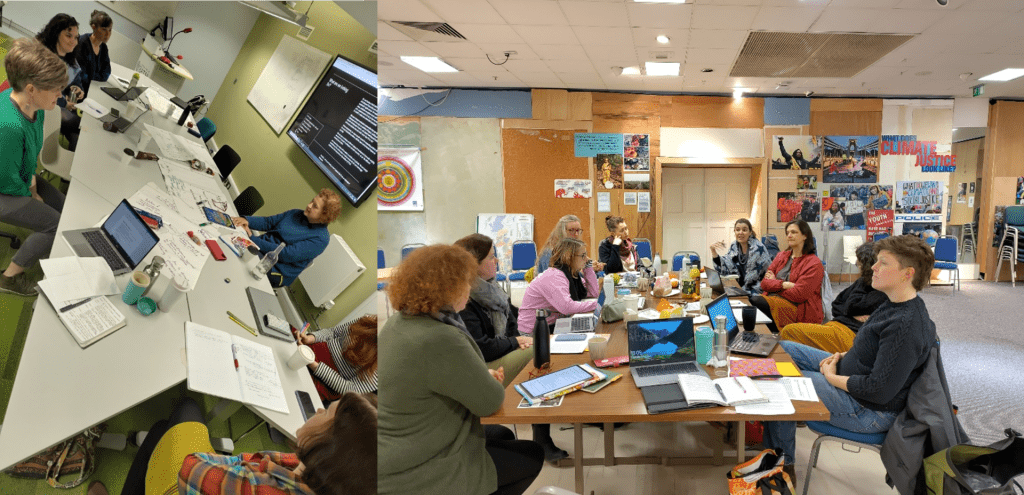
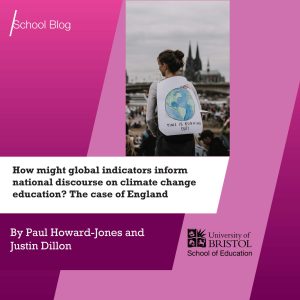 By Paul Howard-Jones and Justin Dillon
By Paul Howard-Jones and Justin Dillon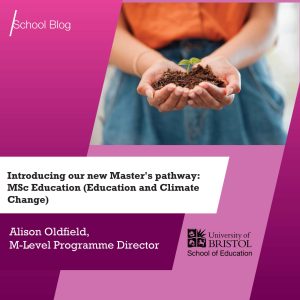
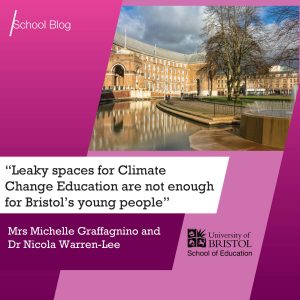 Blog by Mrs Michelle Graffagnino, Senior Lecturer in Education, and Dr Nicola Warren-Lee, Senior Lecturer in Education.
Blog by Mrs Michelle Graffagnino, Senior Lecturer in Education, and Dr Nicola Warren-Lee, Senior Lecturer in Education.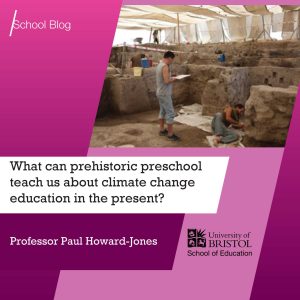 Blog by
Blog by 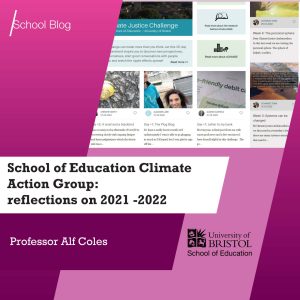 Blog by Professor Alf Coles, School of Education, University of Bristol
Blog by Professor Alf Coles, School of Education, University of Bristol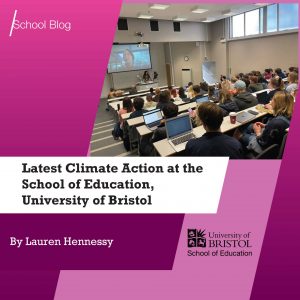 Blog post by
Blog post by  The School of Education is launching the Climate Justice Challenge 2022 and we want you to get involved!
The School of Education is launching the Climate Justice Challenge 2022 and we want you to get involved!